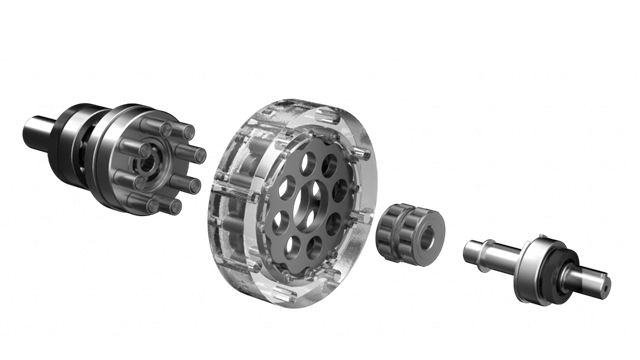Interview Dr. Prith Banerjee: Using Artificial Intelligence in Ansys Simulation
Joël Grognuz
16.07.2024
Becoming Superhuman: Interview with Dr Prith Banerjee, Part 2
What impact does AI have on the product development process and how can AI make engineers even more successful? Dr. Prith Banerjee (CTO, Ansys Inc.) gives insights into the development of artificial intelligence in Ansys simulation technology in this second part of the interview.
You said earlier that AI is a technological disruptor. What do you mean by that?
Today, our customers can say, 'Hey, I have a question, I’ll write to CADFEM or to our Ansys engineers.' The CADFEM engineers or Ansys engineers will reply 'You should use this tool and use that setting.' So, there's a question and there's an answer. Now what we have done is we have taken the last 20 years of questions and answers and put them into GenAI. This way, we have trained our GPT on all those customer interactions; what we’ve got is our new product AnsysGPT, that we just have announced.
There's no issue about customers losing their own intellectual property when using AnsysGPT, because it is sitting on-premises at Ansys. And what it does is to provide first-order level support. However, at the more complicated and more exciting questions, second-order level support or third-order level support, is where CADFEM knowledge comes into place with the expertise that your engineers have. It makes the power of our tools much better.
For the future, we are working on AI technology to not only respond by saying, 'You should set Maxwell to these things,' but it will make the settings automatically. Because, as part of our cloud and platforms work, we are taking all our solvers and providing Python interfaces to them, where it turns out that actual Python scripting can be automatically generated with GenAI.
Then the question is, what does the AI do and what does the human do? It is not like the AI will replace the human engineers. It will make the CADFEM engineers and all other engineers like superhumans. They will have so many capabilities!
What exactly does "Superhuman" mean?
Today, the way design products work is you start with a specification of a product. Suppose you are building an electric car (EV). Today, I have a car that has a range of 200 km and 0 to 60 km in maybe 5 seconds. In the future, I want to design a car that will have a range of 1,000 kilometers and go from 0 to 60 in 1 second. That's the requirement.
Now, in the past, the engineer would have to say, 'What kind of motor do I need? A two-horsepower motor, or a five-horsepower motor, or a 100-horsepower motor?' Obviously, there are all kinds of choices to be made: Should I use a DC motor, an H motor, and so on. The designers have to think about what components they should choose. And you have to think about the battery power. With a small battery pack, I can go 100 kilometers. If I have to go to 1,000 kilometers, I need 10 times the battery pack. Then again, the designers do all those different conceptual designs from the start.
So the use of AI technology is based on earlier designs?
With AI technologies, you start with a requirement based on prior designs. It can guide the user, saying 'Hey, for this requirement, why don't you try a 300-horsepower AC motor and maybe try a 100-cell battery pack?' Generative AI guides the user in coming to a quicker solution, it’s not like it’s replacing the user. The customer may say, 'Hey, I don't like this concept.' So, the GNI technology will provide the customer with other choices. It’s all being validated through all our Ansys simulation products.
So, the engineers, the designers become superhuman. Using generative AI makes you more productive, and that helps your company in growing topline revenue. They are happy, their CEO will be super happy: 'Wow, you did the design of this electric car with a range of 1,000 km in a matter of one week, something that once took four years to do.' Everyone's happy.
Read more: Prith Banerjee on the Ansys Grand Vision
Watch now the full interview with Prith Banerjee on our YouTube channel!




